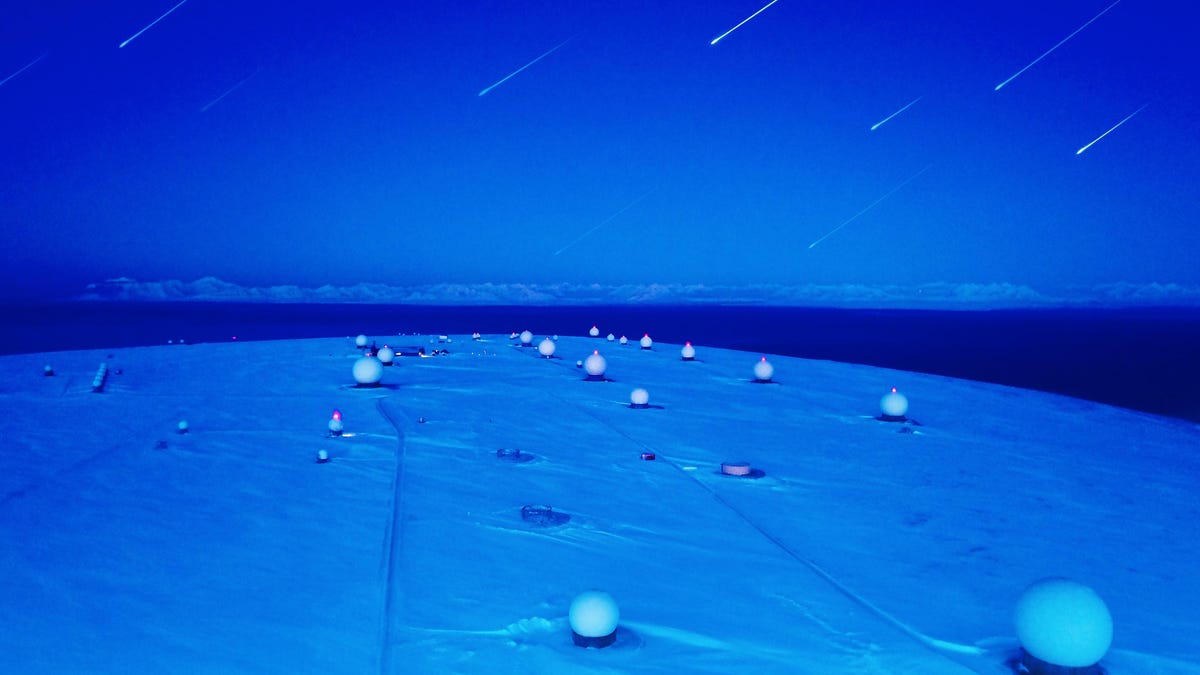First artificial meteor shower might outshine natural 'shooting stars'
The sky gets lit! Japanese company Astro Live Experiences is sending a satellite to orbit capable of creating a phenomenal light show.

Rendering of an artificial meteor shower over Japan.
Meteor showers produce some of the most exciting nights of the year for dedicated skywatchers, but often they're unpredictable -- and the weather doesn't always cooperate either. A Japanese company thinks it has the solution: its satellite equipped to produce humanity's first-ever artificial meteor shower heads to orbit this week.
Tokyo-based ALE (for Astro Live Experiences) pitches itself as a pioneer in the "space entertainment sector." It hopes to conduct a groundbreaking artificial meteor event in 2020 using its first satellite over an area near Hiroshima, where it will be observable by up to 6 million people over an area 200 kilometers (124 miles) wide.
That satellite launches from Japan Thursday morning (Wednesday evening, Pacific Time) and is designed to test the concept and gather data that will help develop and refine the product. A second satellite is already under development.
"I hope that our man-made meteors will help reveal new discoveries in science, and that it will gather and entertain people under the night sky," CEO Lena Okajima said in a statement.
The satellite creates its sky show by firing off little pellets a centimeter in diameter that are made up of a proprietary mix of non-toxic materials. The "particles," as ALE calls them, are designed to generate a range of bright colors as they heat up and disintegrate during reentry into the atmosphere, all while still over 60 kilometers (37 miles) above our heads.
The company says the particles will travel more slowly and glow longer than a natural meteor and with enough brightness to be seen over even cities with heavy light pollution like Tokyo.
ALE's first satellite is set to launch as soon as 9:50 a.m. Thursday, Japan time (4:50 p.m. PT Wednesday) aboard a Japanese Aerospace Exploration Agency (JAXA) Epsilon Rocket also carrying six other new technology demonstration satellites.
NASA turns 60: The space agency has taken humanity farther than anyone else, and it has plans to go further.
Taking It to Extremes: Mix insane situations -- erupting volcanoes, nuclear meltdowns, 30-foot waves -- with everyday tech. Here's what happens.

